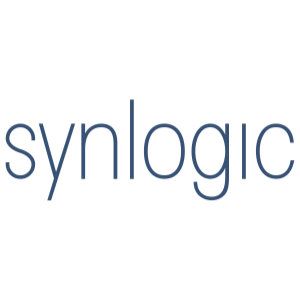Synlogic Presents Data on SYNB8802 for Enteric Hyperoxaluria at American Urological Association (AUA) Annual Meeting
Synlogic, Inc. (Nasdaq: SYBX) announced presentations on SYNB8802, a Synthetic Biotic for treating Enteric Hyperoxaluria, at the AUA Annual Meeting (Sept 10-13, 2021). Key findings from the Phase 1A study revealed SYNB8802 was well-tolerated, with no serious adverse events. Notably, a 28.6% reduction in urinary oxalate levels was observed in participants receiving 3e11 live cells thrice daily, compared to placebo. This treatment addresses an unmet medical need, as there are no approved therapies for the 250,000 patients affected in the U.S. by this condition.
- SYNB8802 demonstrated significant efficacy with a 28.6% reduction in urinary oxalate compared to placebo.
- No serious or systemic adverse events were reported during the Phase 1A study, indicating strong safety profile.
- None.
Insights
Analyzing...
CAMBRIDGE, Mass., Sept. 10, 2021 /PRNewswire/ -- Synlogic, Inc. (Nasdaq: SYBX), a clinical stage company bringing the transformative potential of synthetic biology to medicine, today announced that it will present data on SYNB8802, an investigational Synthetic Biotic medicine for the treatment of Enteric Hyperoxaluria (HOX), during the American Urological Association (AUA) Annual Meeting, being held virtually September 10 – 13th.
Title: Safety and Tolerability of an Oxalate-Consuming Synthetic Biotic Medicine: SYNB8802 in Healthy Volunteers with Induced Dietary Hyperoxaluria
Abstract Number: 21-6087
Synlogic will share previously communicated results of the SYNB8802 Phase 1A study including:
- SYNB8802 was generally well tolerated in healthy volunteers. There were no serious or systemic adverse events. The most frequent adverse events were mild or moderate, transient, and GI-related.
- Dietary Hyperoxaluria was successfully induced in healthy volunteers.
- Dose-responsive changes in urinary oxalate levels were observed with a significant reduction in urinary oxalate relative to placebo across three dose levels.
- A dose of 3e11 live cells administered three times daily with meals was selected as the dose for Part B of the study.
- This dose was well-tolerated and resulted in a
28.6% (90% CI: -42.4 to -11.6) reduction from baseline urinary oxalate levels compared to placebo. - At the end of dosing, the mean 24-hour urinary oxalate level was 40.1 mg for subjects treated with SYNB8802 3e11 live cells, compared to 58.1 mg for placebo subjects.
- Upper limit of normal urinary oxalate levels are 45 mg per 24 hours.
Learn more about Synlogic's programs and pipeline by visiting https://www.synlogictx.com/.
About Enteric Hyperoxaluria
Enteric hyperoxaluria (HOX) is an acquired metabolic disorder caused by increased absorption of dietary oxalate, which is present in many common foods including leafy greens, nuts, and chocolate. Enteric hyperoxaluria often occurs as a result of a primary insult to the bowel, such as inflammatory bowel disease, Crohn's disease, short bowel syndrome, or as a result of surgical procedures such as Roux-en-Y bariatric weight-loss surgery.
Enteric hyperoxaluria results in dangerously high levels of urinary oxalate, which causes progressive kidney damage, kidney stone formation, and nephrocalcinosis. There are an estimated 250,000 patients with enteric hyperoxaluria in the United States. Enteric hyperoxaluria has no approved treatment options.
About SYNB8802
SYNB8802 is an engineered non-pathogenic strain of E. coli (Nissle), using Synlogic's Synthetic Biotic platform, designed to consume oxalate in the GI tract and lower urinary oxalate levels, potentially reducing kidney damage due to enteric hyperoxaluria. SYNB8802 is administered orally. SYNB8802 is currently undergoing Phase 1 studies in healthy volunteers and patients with enteric hyperoxaluria.
About Synlogic
Synlogic™ is bringing the transformative potential of synthetic biology to medicine. With a premiere synthetic biology platform that leverages a reproducible, modular approach to microbial engineering, Synlogic designs Synthetic Biotic medicines that target validated underlying biology to treat disease in new ways. Synlogic's proprietary pipeline includes Synthetic Biotics for the treatment of metabolic disorders including Phenylketonuria (PKU) and Enteric Hyperoxaluria (HOX). The company is also building a portfolio of partner-able assets in immunology and oncology.
Forward-Looking Statements
This press release contains "forward-looking statements" that involve substantial risks and uncertainties for purposes of the safe harbor provided by the Private Securities Litigation Reform Act of 1995. All statements, other than statements of historical facts, included in this press release regarding strategy, future operations, clinical development plans, future financial position, future revenue, projected expenses, prospects, plans and objectives of management are forward-looking statements. In addition, when or if used in this press release, the words "may," "could," "should," "anticipate," "believe," "estimate," "expect," "intend," "plan," "predict" and similar expressions and their variants, as they relate to Synlogic may identify forward-looking statements. Examples of forward-looking statements, include, but are not limited to, statements regarding the potential of Synlogic's platform to develop therapeutics to address a wide range of diseases including: cancer, inborn errors of metabolism, and inflammatory and immune disorders; the future clinical development of Synthetic Biotic medicines; the approach Synlogic is taking to discover and develop novel therapeutics using synthetic biology; and the expected timing of Synlogic's clinical trials and availability of clinical trial data. Actual results could differ materially from those contained in any forward-looking statement as a result of various factors, including: the uncertainties inherent in the clinical and preclinical development process; the ability of Synlogic to protect its intellectual property rights; and legislative, regulatory, political and economic developments, as well as those risks identified under the heading "Risk Factors" in Synlogic's filings with the SEC. The forward-looking statements contained in this press release reflect Synlogic's current views with respect to future events. Synlogic anticipates that subsequent events and developments will cause its views to change. However, while Synlogic may elect to update these forward-looking statements in the future, Synlogic specifically disclaims any obligation to do so. These forward-looking statements should not be relied upon as representing Synlogic's view as of any date subsequent to the date hereof.
Media Contact: | Investor Contact: |
Daniel Rosan Synlogic, Inc. Phone: 617-207-5509 Email: dan.rosan@synlogictx.com | Daniel Rosan Synlogic, Inc. Phone: 617-207-5509 Email: dan.rosan@synlogictx.com |
![]() View original content:https://www.prnewswire.com/news-releases/synlogic-presents-data-on-synb8802-for-enteric-hyperoxaluria-at-american-urological-association-aua-annual-meeting-301373400.html
View original content:https://www.prnewswire.com/news-releases/synlogic-presents-data-on-synb8802-for-enteric-hyperoxaluria-at-american-urological-association-aua-annual-meeting-301373400.html
SOURCE Synlogic, Inc.







